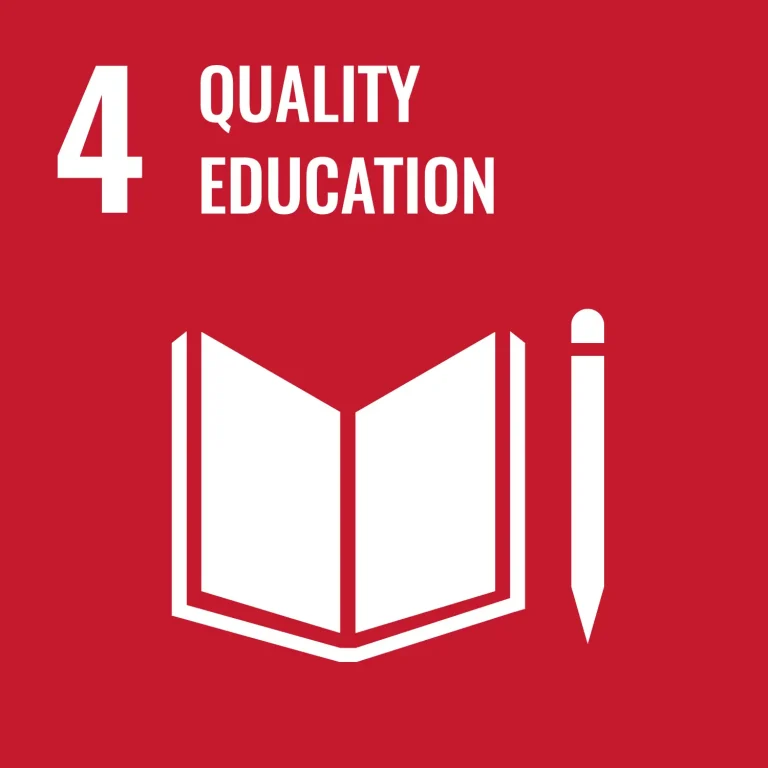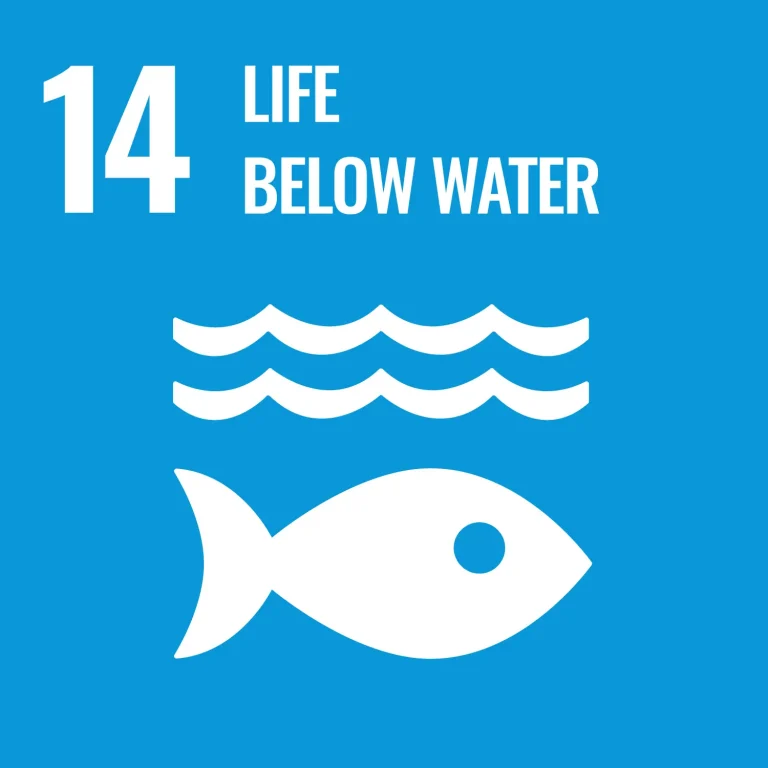
Add Your Heading Text Here

















University of Haifa: Code of Ethics
The University of Haifa is among the country’s leading research universities and an academic center of northern Israel. The University’s purpose is to acquire and advance knowledge by way of academic excellence, and to contribute to Israeli society and the world through research and teaching. The University of Haifa is committed to the highest academic standards and to intellectual honesty. It strives to foster innovation, multidisciplinarity, and creativity. Academic freedom lies at the heart of the ideal of a University (see appendix). The University endeavors to establish a community of individuals engaged in research, invention, and learning of high quality, diversity, and productivity – a community committed to freedom of thought and discussion, respect for human dignity and collegiality; a community in which the love of knowledge and discovery for its own sake, and the desire to contribute through this knowledge, generate high-quality research and learning.
This document, The University of Haifa’s Code of Ethics, is its ‘moral passport’. It offers normative guidelines for the University and its academic community. In the document, the University defines itself in terms of its values and principles, and presents its core values, which are the basis of the ideals to which it aspires and the norms that guide it. Adherence to these is expected from the University’s employees, students, and all who enter it. We are not able nor do we aim to discuss every situation or every rule, that might be relevant to appropriate conduct in the University. Rather, the core values, in concert with common sense, should guide the proper course of action in situations not mentioned. The role of this document, including its appendix, is declarative and educational. It is subordinate to the law, and to the University’s constitution, regulations, procedures and disciplinary rules that apply to the University’s employees, students and all who enter it.
For its students, the University is an intellectual home. Through its many academic disciplines, the University offers the scientific and cultural resources required for students to access the treasures of the human spirit. At the same time, the University provides its students with tools for personal and professional growth to establish their careers, assume leadership roles, and succeed in Israeli society and in the modern world. For the benefit of Israeli society, the University cultivates thoughtful, educated and creative people, and trains highly skilled professionals in varied fields who are open to multidisciplinary cooperation and who aspire to further develop, lead, and apply what they have learned.
Studies at the University encourage open, honest, independent and critical thinking, while striving for understanding, depth, systemization, sophistication, precision, and creativity.
As a University in the State of Israel, operating within a diverse society and in a city of unique character, The University of Haifa upholds respect for human dignity and the law, taking an open, tolerant, inclusive and pluralistic approach. It strives to operate autonomously and conduct itself as democratically and openly as possible, and it endorses constructive criticism as an effective avenue for improving its performance. The University of Haifa provides a safe, free, and respectful learning and working environment. It is committed to preventing sexual harassment and other types of abuse, humiliation, or violence. The University treats everyone equally, fairly, and appropriately. It does not discriminate on grounds of race, ethnicity, sex, gender, religion, nationality, political views, civil and family status, sexual orientation, or irrelevant disability.
Core Values
- Love of knowledge and academic excellence
- Contribution to Israeli society and to the world through research and teaching
- Academic freedom
- Human dignity
Ideals and Norms
As researchers, members of the academic staff will maintain a deep and up-to-date knowledge and expertise in their prospective fields. They will strive for self-development, professionalism and excellence. They will systematically seek to create and innovate, contribute to academic research, and publish in recognized, quality, peer-reviewed academic publications in their fields, whilst realizing the full potential of their capabilities. They will conduct themselves with intellectual honesty and personal integrity while remaining receptive to peer criticism. Researchers will act collegially and grant proper recognition of contributions by colleagues and students to their own research. They will maintain independent and unbiased research, avoid conflicts of interest, and strive to meet their research obligations to the University and to other organizations to which they have committed themselves for research purposes. Researchers will abide by ethical regulations in research and in experiments on human and animal subjects and will exercise the required sensitivity.
As lecturers, members of the academic staff will continuously update and improve their pedagogical skills and strive for an open, critical, engaging, innovative, and creative mode of teaching. They will aspire to provide their students with the academic essentials and familiarize them with the cutting-edge research in their fields. When teaching for advanced
degrees, the lecturers will cultivate the next generation of researchers and equip them with the latest tools required for their continued growth as researchers. Lecturers will teach in a professional, fitting manner, and will exercise academic freedom appropriately (see appendix). They will deal with their colleagues, students and the administrative staff with integrity, and in a fair, respectful, approachable, attentive, and responsible manner. The lecturers will be dedicated to teaching and will aspire to advance their students in an appropriate manner.
The students will study and develop intellectually and professionally. They will aspire to high academic achievements, and will act responsibly in their studies. They will maintain integrity in their academic activities, including truthful, reliable, and accurate reporting as well as fair and proper citation and attribution. The students will treat lecturers and researchers, members of the administrative staff and fellow students with decency and respect. They will contribute their share towards sustaining an open, positive, and fruitful learning environment.
The administrative staff will endeavor to promote the University’s objectives. They will assist teaching and research with honesty, dedication, professionalism, efficiency, and good judgment. Members of the administrative staff will not hesitate to express their professional view. They will diligently honor contractual agreements and uphold proper administrative and managerial principles. They will operate transparently, and treat those with whom they deal, in the course of their work, in and outside the University, with integrity, and in a fair, respectful, accessible, attentive, and responsible manner.
Those serving in managerial and leadership positions across the various levels and units of the University will participate in formulating the goals of the University and its units.
They will manage and lead the University and their respective units according to the core values, ideals, and norms presented in this document, with a sense of public obligation, leadership, and openness to criticism, while setting a personal example. They will strive to administer the University and its units professionally, creatively, and responsibly whilst balancing present and future needs, and working to cultivate initiative, commitment, and a sense of camaraderie.
All University employees (both academic and administrative) and students will behave honestly and in good faith while maintaining moral integrity and avoiding any action which involves a conflict of interest. Employees and students will not abuse power relations or positions of authority. They will exercise academic freedom appropriately (see appendix). They will respect required privacy and confidentiality, and avoid the infringement of copyright and intellectual property. They will protect University property, make efficient use of University resources, and will not misuse its name. University
employees and students will see themselves as partners in the University community, and be positive and active members of the academic and administrative units to which they belong and in the University in general.
The University of Haifa is a recognized institution of higher education. The University will strive to develop an optimal working environment for research and teaching. It will conduct itself responsibly and efficiently and will utilize its resources and budgets wisely. The University will deal with external bodies fairly and, to the extent possible, will aspire to transparency. It will treat all employees fairly and respectfully, giving special attention to the appropriate treatment of junior and untenured employees; and to students in all academic frameworks. The University will aspire to provide academic opportunities for diverse student populations, and will strive to be accessible to persons with disabilities. It will act with awareness and responsibility for the surrounding environment and attempt to minimize the suffering caused in legally-conducted animal experiments. The University will develop international relations with academic institutions and bodies and advance exchange programs for researchers and students. It will open its gates to the public, offering open lectures and library access to the extent possible, contribute to the general education of the public through its publishing house and electronic media, and will encourage involvement and volunteer work in the community among its members. The University will act to maintain contact with its retirees, and work to provide those retired academic researchers who so wish with the opportunity to continue their professional development and to conduct research in its midst. It will respect the University’s friends and donors and endeavor to maintain contact with its alumni. The University will exercise moral discernment as it solicits contributions and will grant honorary degrees in a way that accords with its core values.
The University will take care when hiring and evaluating its employees and students. It will hire academic staff members professionally, fairly, and objectively, based upon their academic excellence and suitability to research and teaching requirements. It will grant promotions and tenure professionally, fairly, and objectively, and in accordance with appropriate and exceptionally high international academic standards. The University will select administrative staff members based on their suitability for the required positions and according to its needs, and will grant promotions and tenure professionally, fairly, and objectively. It will accept students based on clearly defined and relevant academic criteria, grant dispensations, scholarships, and awards professionally, fairly and objectively, and award academic degrees according to recognized academic standards
The University community will promote the understanding and implementation of the core values, ideals and norms described herein and will aspire to conduct itself accordingly.
Appendix on Academic Freedom
Academic freedom lies at the heart of the ideal of a University. It is a special liberty whose roots lie in human curiosity and the yearning for knowledge. It is a right accorded to academia that is related to freedom of expression, and an integral component of the civil liberties that exist in a democratic state. Academic freedom is, in essence, the right and opportunity to strive to acquire and advance knowledge – to research, publish, teach, and learn freely in the academic context. Academic freedom is of paramount importance both in principle and as a means of attaining the University’s goals. However, like freedom of expression, academic freedom may be balanced against other rights in the exceptional cases where they conflict. Academic freedom is a basis for acquiring knowledge and attaining academic excellence, thereby enabling the University to offer the fruits of its research and teaching to Israel and the world. Thanks to the tradition of academic freedom at universities, hundreds of years of intellectual achievements have been made possible. It is impossible to imagine the achievements of the modern era in thought, science, and culture, without universities in which academic freedom is guaranteed. Academic freedom and the sense of freedom it allows are a necessary condition for the flowering of intellectual curiosity and for groundbreaking academic investigation, creation, and study.
Alongside academic freedom, the University will respect its employees’ and students’ right to freedom of expression within the bounds of the law, including their freedom to associate, to assemble and to demonstrate on University grounds, which it will facilitate through University regulations.
Academic freedom in the management of the University is sustained by the University’s broad autonomy vis-a-vis political institutions and civil society and, internally, by the appropriate independence of each academic unit within the University. Academic freedom in managing the University exists to enable striving for knowledge and academic excellence while giving predominant and appropriate weight to pertinent academic considerations. It includes autonomy to determine the framework for academic and non-academic research and teaching, to assign academic priorities, to recruit, appoint, and promote academic staff, to accept and evaluate students, and for the University’s day- to-day academic and administrative conduct. Academic freedom is sustained by good working conditions and a supportive professional and human environment.
Academic freedom in research includes a broad freedom given to researchers to choose topics of research and to conduct, present, and publish their research according to prevailing academic standards. Academic freedom in teaching includes the broad freedom given to lecturers to choose the topics, content, and means of teaching within the framework of academic standards (and subject to the teaching needs of the various
academic units); and their broad freedom of expression while teaching. Academic freedom in research and teaching also includes the liberty to deal with unconventional or controversial topics, consider problematic options, cast doubt, challenge conventions, voice criticism and express unpopular opinions. The first commitment of researchers and teachers is to the truth as they see it. The University places great importance on the ability of its academic staff to research and express themselves without fear of censorship and sanction. Granting tenure to senior academic staff also contributes to these protections. The University encourages freedom of the spirit and desires intellectual and professional resolve and commitment. It will support the members of its academic staff as long as they use their academic freedom properly and operate as allowed by the law and University regulations.
The academic freedom of researchers and lecturers comes with a special responsibility required for appropriate conduct that is professional, pertinent, trustworthy, fair, and respectful of persons. Teaching especially is accompanied by authority, power, and relations of subordination that lecturers must avoid abusing. Lecturers will not misuse academic freedom in a way that will cause irrelevant exclusion or discrimination, or in ways disrespectful of their students or of their rights to freedom of opinion. Lecturers will enable the free expression of diverse, relevant opinions, including those opposed to the lecturer’s views. They will teach in a professional and pertinent way, trying to avoid highly controversial expressions if unrelated directly or indirectly to the issues studied, and intended for manifestly non-professional purposes. The academic freedom of researchers is accompanied by a special responsibility to conduct their research in a way that is professional, impartial and without ulterior motive, to avoid conflicts of interest in research, and to retain the ability for independent judgment at all times. The responsibility accompanying the academic freedom of academic staff includes the expectation that they will faithfully present professional disagreements on the academic issues under consideration while expressing and defending their own opinions. Academic staff will take care, while exercising their personal freedom of expression in public, not to create the impression that their personal opinions represent those of their academic unit or the University.
The academic freedom of students includes the freedom to take up positions and express views within the academic agenda (subject to pedagogical requirements), in the classroom and in academic assignments, and is accompanied by the expectation that they conduct themselves in a manner that is pertinent, trustworthy, fair and respectful of persons.
Academic freedom is a core value in the University. Academic freedom advances the acquisition of knowledge and the attainment of academic excellence while contributing to Israeli society and the world through research and teaching. The realization of academic freedom in the University community openly, maximally and properly is of crucial importance.

